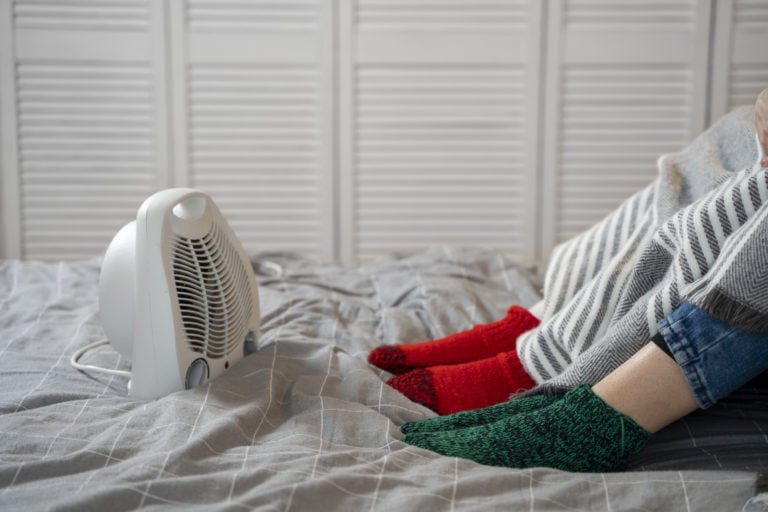When the temperature drops, a broken heating system can be more than just an inconvenience—it can be urgent. Knowing quick fixes or temporary solutions can help you stay warm and safe until professional help arrives. However, it’s crucial to remember that emergency repairs are only short-term measures. For a lasting fix, always consult an expert for heating repair, who can ensure your system runs efficiently once restored. Prepare wisely and you’ll be ready for anything winter throws your way.
Understanding Your Heating System
A reliable heating system is the backbone of keeping your home comfortable when temperatures drop. Whether planning regular maintenance or dealing with an emergency, understanding how your system works can make all the difference. Below, we break down the key types of heating systems and their main components.
Types of Heating Systems
Heating systems come in various forms, each with its strengths. Here are the most common systems you’ll encounter in homes:
- Furnaces: Often powered by gas or electricity, these systems use a blower to distribute warm air through ductwork. Furnaces are incredibly common and can heat a home quickly, making them a popular choice.
- Heat Pumps: These versatile systems work for heating and cooling, transferring heat inside and outside your home. They’re energy-efficient and particularly effective in milder climates. Always consider that the heat pump system is different from a split system.
- Electric Heaters: Ideal for smaller areas or as a backup solution, electric heaters generate warmth using electric resistance. While convenient, they can be less energy-efficient compared to other systems.
Knowing your home’s system type is the first step to understanding its operation and troubleshooting issues when they arise.
Basic Components of Heating Systems
Every heating system has essential parts that keep your home warm. Being familiar with these can help you identify problems more effectively:
- Thermostat: The control center of your heating system, the thermostat regulates temperatures by signaling the system to turn on or off. Programmable models allow you to save energy by setting schedules.
- Heat Exchanger: Found in furnaces, this critical component transfers heat from combustion gases to the air without letting harmful fumes enter your home.
- Ductwork: Acting as the delivery system, ductwork transports warm air throughout the house. Blocked or leaky ducts can reduce efficiency and increase energy bills.
Routine maintenance, like cleaning ducts or checking thermostats, can prevent many issues. For more complex problems, seek professional residential HVAC service and repair assistance, to keep your system running safely and efficiently.
Understanding these foundational aspects of heating systems ensures you’re better prepared for routine upkeep or emergency heating system repair. Always remember, temporary fixes won’t last—consulting an expert is key to a permanent solution.
Emergency Troubleshooting Steps
Quick action is essential when your heating system fails during a cold snap. Basic troubleshooting steps can make a critical difference in ensuring your home stays safe and livable until professional help arrives. Below, we’ll walk through practical steps to identify problems, prioritize safety, and create temporary fixes.
Identifying Common Issues
Before diving into repairs, start by pinpointing what’s wrong. It’s easier to address a specific concern than to guess unthinkingly. Common heating system issues include:
- No Heat: Check the thermostat settings and circuit breakers if your system isn’t running. Sometimes, a tripped breaker is the culprit.
- Strange Noises: Unusual noises like banging or screeching can signal component failure, such as a damaged blower motor or loose parts.
- Overheating: Feel excessive heat coming from the system? This could mean blocked air filters or a malfunctioning thermostat.
These signs are your early-warning system, helping you decide whether a simple adjustment or professional repair is needed. Scheduling residential HVAC service and repair can provide a long-term fix for ongoing issues.
Safety Precautions
Your safety and that of your household should always come first. Mishandling a heating system can lead to accidents or further damage. Here are some precautions to take when troubleshooting:
- Turn Off the Power: Before inspecting any hardware, shut off power to the system to avoid electrical shocks.
- Ensure Ventilation: If you suspect a gas leak, ensure proper ventilation and evacuate the house. Never attempt fixes if you smell gas.
- Avoid Open Flames: Don’t use candles or open flames to stay warm while troubleshooting—it’s a fire hazard.
By following these steps, you minimize risks while diagnosing the problem. If you need more time to handle the issue, professional services like air conditioning system maintenance can assess and repair your heating system.
Temporary Fixes
If immediate repairs aren’t possible, temporary solutions can keep you warm in the short term. Here are some practical fixes to consider:
- Use Space Heaters: Electric space heaters are an effective way to warm key areas of your home. Keep them clear of furniture and power them off when unattended.
- Layer Up: Use thick blankets, insulated clothing, and thermal socks to retain body heat.
- Redirect Sunlight: Open curtains on sunny days to let in natural heat, then close them at night to trap warmth.
These fixes can help you bridge the gap until your heating system is repaired. However, remember, they’re not long-term solutions. For lasting repairs, consult an expert in commercial HVAC installation & repair to get your system back on track.
By identifying issues, prioritizing safety, and implementing temporary solutions, you’re better equipped to manage heating emergencies. Always call a professional for permanent repairs to ensure the longevity and safety of your system.
Tips for Maintaining Your Heating System
Keeping your heating system in peak condition is key to avoiding unexpected repair costs or emergencies. Regular maintenance not only ensures efficient performance but also prolongs the life of your equipment. Here’s how to stay ahead with proper maintenance techniques.
Regular Check-Ups
Scheduling regular professional inspections is one of the best things you can do for your heating system. Just like you’d take your car for routine service, your heating equipment needs similar attention. Experts can identify worn parts, clean critical areas, and ensure your system runs efficiently.
A well-maintained system is less likely to fail during freezing temperatures. Professionals can detect issues that may not be noticeable during normal operation. Annual servicing before winter is a great way to prepare for the cold months.
Filter Maintenance
Dirty or clogged filters are the most common culprits behind inefficient heating systems. When filters get blocked, your system has to work harder to circulate air, spiking your energy bill and straining the equipment.
Changing filters regularly—typically every one to three months—is an easy yet effective way to maintain efficiency. If you have pets or live in a dusty area, consider replacing them more often. Filters are your system’s first line of defense against dust, allergens, and debris, so don’t neglect this small but crucial task.
Understanding Your System’s Warning Signs
Your heating system often provides early signals when something is wrong—don’t ignore them. Pay attention to these warning signs, as they may indicate the need for timely repairs:
- Unusual Noises: Sounds like banging, rattling, or whistling could signify loose components or motor issues.
- Uneven Heating: Notice hot and cold spots in your home? This might be a ductwork or thermostat problem.
- Spike in Energy Bills: If your energy usage has increased unexpectedly, your system might struggle to run efficiently.
Recognizing these signs earlier can save you from more significant and costly breakdowns. For professional help with diagnosing and fixing HVAC issues, consider scheduling service with a trusted provider like.
Being proactive with regular check-ups, routine filter changes, and catching early warning signs can go a long way in keeping your heating system running smoothly. Make maintenance a priority to ensure you’ll always be ready when temperatures drop.
Conclusion
Handling emergency heating system repairs in 2024 can be manageable with the right knowledge. Preparing for minor troubleshooting and knowing when to call a professional can save time and stress during unexpected breakdowns. While temporary solutions may provide short-term relief, they are never a substitute for a permanent fix. Always keep safety at the forefront when dealing with your heating system.



